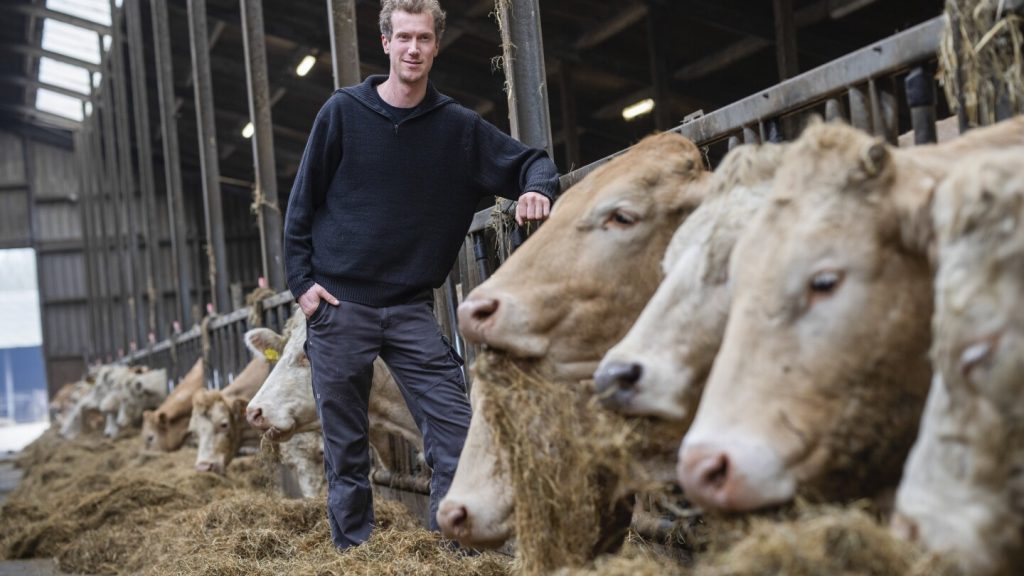Agriculture in Europe is facing a crisis as farmers like Jos Ubels in the northern Netherlands are feeling the pressure of climate regulations and competition from cheap imports. Farmers’ discontent is growing across the EU as the June parliamentary elections draw near. The Farmers Defense Force, a prominent group formed in 2019, is leading the charge with plans for a massive demonstration in Brussels to challenge the regulations imposed by the EU and national governments. The radical right is gaining traction among farmers who feel neglected by mainstream political parties and are seeking to make their voices heard through protests and demonstrations.
The European Union is pushing for stringent nature and agricultural laws as part of its Green Deal to achieve climate neutrality by 2050. Agriculture is a significant contributor to greenhouse gas emissions in the EU, and farmers are being pressured to make changes to reduce emissions. The COVID-19 pandemic, surging inflation, and the war in Ukraine have added to the financial insecurity faced by farmers. The influx of agricultural imports from Ukraine, exempt from strict environmental standards, has caused disruptions in the market and undercut local farmers, particularly in countries like Poland. The farmers are feeling the impact of these challenges and are turning to the radical right for support and representation.
The far-right movements in Europe are capitalizing on farmers’ frustrations and using farming as a way to attack mainstream political parties. The far right is tapping into farmers’ love for the land and their deep connection to agriculture as a way to gain support. Calls for revolt and protests against regulations and environmental laws are resonating with farmers who feel ignored by traditional parties. The upcoming European elections are expected to see a surge in support for far-right parties, with farmers playing a crucial role in shaping the political landscape.
While some farmers are engaging in militant demonstrations, others are advocating for common-sense solutions to the challenges facing the agricultural sector. Bart Dochy, a Christian Democrat and mayor of a farming town in Belgium, warns against the extremes and emphasizes the need for balanced approaches to issues like trade, budgets, and commodity prices. The center-right political parties, traditionally supporters of the EU’s Green Deal, are facing backlash from farmers and are adjusting their policies on agriculture and climate in response to the protests. As the political rhetoric escalates and the climate crisis worsens, farmers are looking to the opposition for support and solutions.
The far-right parties in Europe are gaining momentum by tapping into farmers’ frustrations and presenting themselves as champions of the agricultural sector. While lacking detailed solutions to the climate crisis, the far right is adept at connecting with farmers and addressing their grievances. The Dutch far-right party, the PVV, is emphasizing the need to balance nature and climate laws with economic concerns to prevent sectors like agriculture from facing bankruptcy. Farmers like Jos Ubels are turning to the opposition for representation and support, as they feel ignored by the government and mainstream political parties. The upcoming European elections will be crucial in determining the future of agriculture and the political landscape in Europe.


